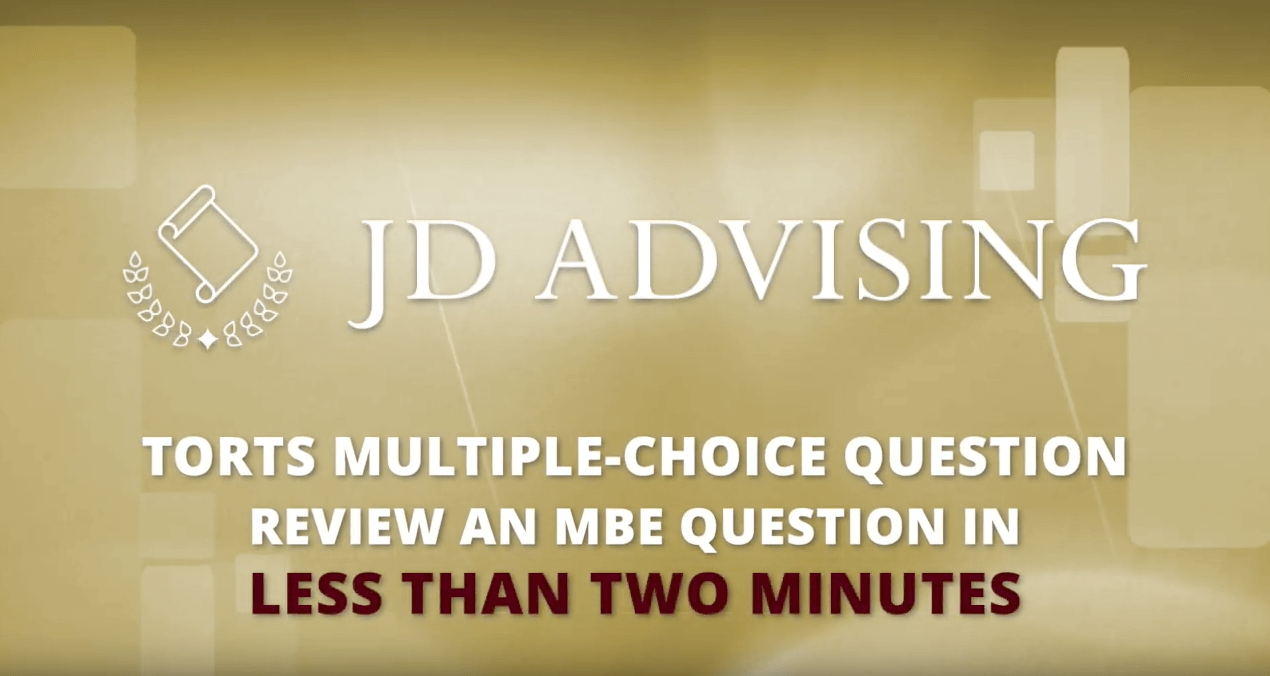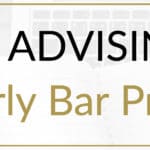Two-Minute MBE Question: Torts (trespass)
Two-Minute MBE Question: Torts (trespass)
Here, we discuss how to approach the following Torts MBE question in two minutes. Read the question below then check out the YouYube video below for an answer explanation in less than two minutes!
Torts MBE Question:
A man was building a home on a vacant piece of land. The man wanted to remove tree roots that stretched from a tree stump in the neighbor’s yard to his own yard. The man decided to dig beneath the neighbor’s yard and remove the tree roots. The digging caused no impact on the neighbor’s land, and it did not interfere with the neighbor’s use or enjoyment of his land. Nonetheless, the neighbor sued the man for trespass.
Which party is likely to prevail?
(A) The man, because his decision to remove tree stump roots was reasonable.
(B) The man, because he did not interfere with the use and enjoyment of the neighbor’s property.
(C) The neighbor, because the man intentionally entered the neighbor’s property without permission.
(D) The neighbor, because the man did not give reasonable notice to the neighbor of his intent to dig up the tree roots.
Torts MBE Video Answer Explanation:
Looking for the written answer explanation?
You can find the answer to the Torts MBE question in the video above or the text below. Just click “SHOW ANSWER”
SHOW ANSWER
(C) is the correct answer. A trespass is the intentional invasion of the land of another. The man intentionally invaded the land of another (his neighbor). Invading the land a reasonable distance above or below the land “counts” as a trespass. So even if the man was not walking on top of the neighbor’s land, digging under the land counts. Thus, the man is liable for trespass, and the neighbor is likely to prevail in the dispute.
(A) is incorrect because reasonableness is not a defense to an intentional tort. It makes no difference in this case whether the man’s actions were reasonable as he intentionally invaded the land of another.
(B) is incorrect. This is language that you may see in a nuisance question (i.e., if one substantially and unreasonably interferes with the use and enjoyment of another’s land, one may be liable for nuisance). Here, though, the question is whether the man is liable for trespass.
(D) is incorrect because notice that one is going to commit a tort does not make the commission of the tort okay! Notice would not change the result. For example, if A said, “I’m going to punch you in the face,” to B (and if A thereafter punched B), A would still be liable for battery. (Note: if the man received the neighbor’s consent, that would change the result, but notice does not!)
Looking to prepare for the bar exam early?
Sign up for our JD Advising Early Bar Prep campaign. We go over early bar prep tips in five minutes a day! It is a great way to get ahead while practicing social distancing and we also include more two-minute MBE questions like this one!
Looking to Pass the Bar Exam?
Free Resources:
- 🌟Bar Exam Free Resource Center: Access our most popular free guides, webinars, and resources to set you on the path to success.
- Free Bar Exam Guides: Expert advice on the MBE, the MEE, passing strategies, and overcoming failure.
- Free Webinars: Get insight from top bar exam experts to ace your preparation.
Paid Resources:
- 🏆One-Sheets: Our most popular product! Master the Bar Exam with these five-star rated essentials.
- Bar Exam Outlines: Our comprehensive and condensed bar exam outlines present key information in an organized, easy-to-digest layout.
- Exclusive Mastery Classes: Dive deep into highly tested areas of the MBE, MEE, MPT, and CA bar exams in these live, one-time events.
- Specialized Private Tutoring: With years of experience under our belt, our experts provide personalized guidance to ensure you excel.
- Bar Exam Courses: On Demand and Premium options tailored to your needs.
- Bar Exam Crash Course + Mini Outlines: A great review of the topics you need to know!
🔥 NEW! Check out our Repeat Taker Bar Exam Course and our new premier Guarantee Pass Program!








Leave a Reply
Want to join the discussion?Feel free to contribute!